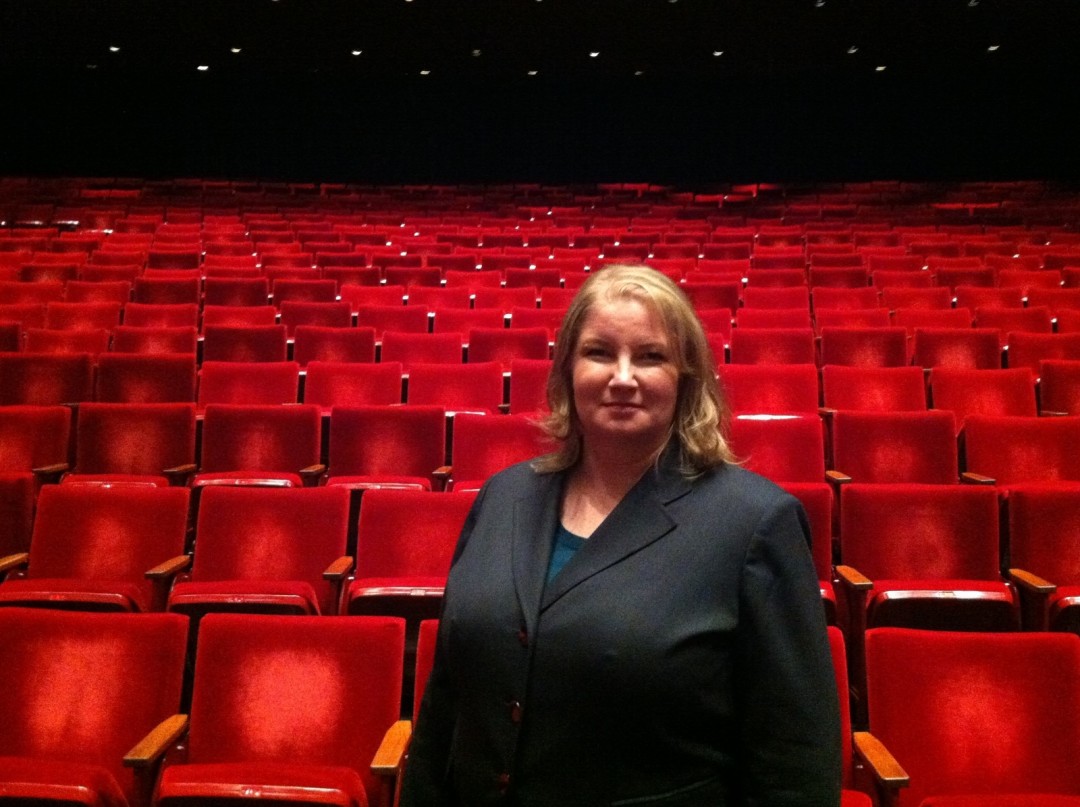Arts Insider: Kristin Johnson

Kristin Johnson is the director of operations and production at the Houston Symphony. A veteran stage manager, Johnson began her career at the Houston Grand Opera and has also worked at Rice’s Shepherd School of Music and with numerous opera companies across the world. We sat down with Johnson in her office at Jones Hall.
Houstonia: How did you get into this business?
Kristin Johnson: I started out as a singer. I was going to school at the University of Houston to sing and be a choir director. One time I had a case of bronchitis, so I was roped into being the stage manager for the opera The Ghost of Versailles. I fell in love with doing that. I liked the organization side of it—you’re sort of the flight controller of the opera. You’re the one telling everyone what to do and when to do it, and making sure it all comes together at the right time. So there’s a lot of fun in that. There’s a lot of stress in it too, but when you get it right it’s really cool. Everyone talks about that “stage manager high,” when you hit the cue perfectly and it times out just right.
So, you were hooked.
I was hooked. I volunteered one summer at the Houston Grand Opera, and thought that was what I wanted to do, so I called the person I volunteered with and asked her for a job. She said “Good, can you start in September?” I started full time in 1999 as a stage manager and then worked my way up. Seven years ago, I left to become the director of production at the Rice School of Music. And while I was at the HGO, I worked for a lot of other opera companies during the gaps in my schedule.
You had to travel a lot for that, right?
It’s a different kind of travel than most business travel, because you’re gone for six or eight weeks straight. You essentially move for two months. Sometimes you’re put up in private homes as a guest, sometimes you’re given an apartment, sometimes you’re put up in a long-stay hotel. You meet interesting people, you stay in interesting places.
At the Houston Symphony, one of your roles is in-house translator. How many languages do you speak?
I speak a smattering of a lot of languages. Through singing, you learn snippets and strange vocabulary. I can do the church mass in every language you’ve ever thought of. It’s not your typical day-to-day vocabulary. But I know enough of the grammar and vocabulary that I can do the translation. The person who used to do translations at the Houston Symphony quit, and it became my job. A lot of it is standard repertoire—church music. The biggest project was when we did Wozzeck [earlier this year], and Hans Graf and I made a whole new translation for that.
Why not use an existing translation?
He didn’t like the existing translations, and I wasn’t crazy about them either. It was truly his dream show, and we wanted to do it right. So he and I spent untold hours working on the translation. And having arguments over individual words. We spent 14 hours straight one weekend in Dallas, where he was working, shut up in his hotel room, translating.
Did you have experience in translation before coming to the Symphony?
As a singer, you always do your own translations. If you’re handed a piece, you want to know what you’re singing about. It’s just part of the process of learning a piece in another language—you sit down with a dictionary, or you find an existing translation. Otherwise, it’s a lousy performance because you’re just singing words, and they don’t mean anything. It was the same thing stage managing opera—if you’re going to sit and rehearse for three hours, you should know what’s going on.
Do you still sing?
No, not very much. Not in public. Sometimes I miss it, sometimes I don’t. It doesn’t work with my schedule to do anything with a choir. I actually sang with the Houston Symphony Chorus when I was a student at UH, and grew up singing in choirs.
What was the most challenging production you’ve ever worked on?
I think Wozzeck is up there, because the Houston Symphony is not an opera company. So I was director, costume designer, props mistress, stage manager, translator. I wore all the hats. We hired someone to help stage manage, but other than that it was all me. I was the stage manager of The Barber of Seville at the HGO that had a turntable. I was on my way in for a Sunday matinee, and I get a call that the turntable’s broken. So we’ve got technical people trying to fix the turntable, we have the assistant director and I trying to restage the entire opera without a turntable. The turntable ended up getting fixed 20 minutes before the curtain. That’s the fun of live theater—anything can happen at any moment, and you have to be able to fix it or make it work.
What are the differences in working with a symphony versus working with an opera?
I deal with different things that can go wrong. Like, “what do you mean so-and-so’s running late?” Or, “I forgot my cello at home.” Air-conditioning is a nightmare in a theater—it’s always too cold or too hot. Or there’s a breeze, and the music’s blowing off people’s stands. Trying to climatize any huge amount of air is always a challenge. You open the doors to the outside to let 3,000 people in, and all that air that you had cooled off goes right out.




